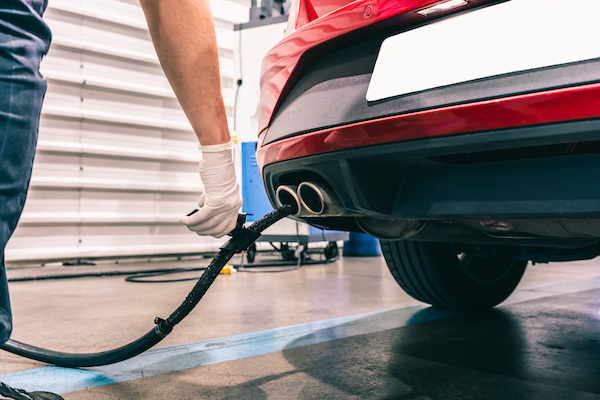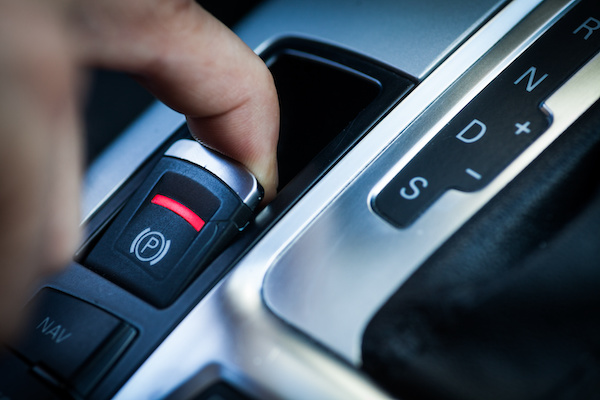Posted on 10/20/2021

Passing your smog test doesn't require any rocket science. If you take proper care of your car, you shouldn't have to worry about failing at all. Your vehicle needs to be within the "normal range" of emissions determined by the government to pass the test. Once you get a renewal notice from California's DMV, you should make an appointment with a licensed station, mark your calendar, and start "studying"/preparing your vehicle for the test. Here are some of our top tips on how to pass your smog test! Perform Regular Maintenance Maintenance is key to pass the smog check with stripes and stars. You should get all your maintenance tasks, including oil changes and spark plug replacements, beforehand. Renewing your fuel injectors can also benefit you by ridding of carbon deposits and lessening emissions. Make Sure Your Tires Are Properly Inflated The more air you put in your tires, the less stress you put on the engine, making it burn less. Please e ... read more
Posted on 9/21/2021
.jpeg)
The newer the car, the more advanced in technology its operating systems will be. Did you know that your vehicle has numerous sensors throughout its systems? They are connected to your car's internal computer, and they're there to serve one goal: communicate if there are any existing and potential problems with its associated vehicle components. Unfortunately, just like any other car part, sensors can fail and produce false alerts. In most cases, they'll do what they are supposed to do in order in your best interest. Some cars have more sensors than others, and certain manufacturers will tweak their sensor tech over the years. However, here are some of the most popular automotive sensors that you should be aware of: Oxygen Sensor: The O2 sensor can be found in the exhaust system and monitors the corresponding levels of oxygen to the exhaust gasses being discharged from the engine. It assists the vehicle's computer system in regulating emission co ... read more
Posted on 8/17/2021
.jpeg)
Your transmission is a component of the engine that converts power to torque. Torque is a force that turns an object—such as weeks—around an axis or axle. Your transmission transforms all of the movement into something that keeps your car moving from place to place. Without an operating transmission, your vehicle won't get you where you need to be. To avoid an expensive auto repair bill, look for these symptoms of transmission trouble. Check Engine Light On. While this light could signify numerous issues under the hood, it could also suggest you're combatting transmission issues. Because the check engine light is attached to an intelligent sensor in your engine, it can recognize vibrations and problems before you ever see or hear them. As soon as you notice this light, please take your car to RM Automotive to get it checked out. Slippery Gears. One of your transmission's most essential tasks is to manage your gear shifts. When it's defective, your transmis ... read more
Posted on 7/16/2021

There are two brake systems in every automobile. We commonly use the service brake, which is the primary brake system that is engaged whenever you step on the brake pedal. The secondary brake system functions as a backup if the service brake fails. The second brake system is often referred to as the emergency brake. However, it is also often synonymous with the parking brake, e-brake, or handbrake. Since it is coined the emergency brake, most people have a misconception that you should only use it during emergencies. However, this common myth must come to a stop. Instances That You Should Use Your E-Brake Parking on a Hill Parking on Flat Ground Parking Along a Curb Your Service Brake Fails Your Car is Getting Serviced Changing Your Tires In other words, you should be using your emergency brakes EVERY DAY. There are a few rare instances where you should not use your e-brake. You should avoid using your parking brake whenever temperatures are well b ... read more
Posted on 6/28/2021

With things starting to return to normal, summer road travel is expected to increase significantly this year compared to last year. 87% of Americans are expected to take a trip this summer, according to a survey administered by Destination Analysts, a travel market research company. It doesn't matter whether it is a trip within the state or across the country; people are thrilled to get out of their homes finally. More travel also means more traffic and ultimately more hazards. To avoid unnecessary stress, we've compiled a list of some popular tips to follow before embarking on your summer travels: 1) Do a deep clean on the outside and inside of your vehicle before leaving. It might be 2021, but it is never a bad idea to properly sanitize your car. Give extra attention to the most commonly touched places: steering wheel, dashboard, and buttons. 2) Conduct your research and plan ahead of time. Map out places to eat, where to stop for gas, and when to ... read more